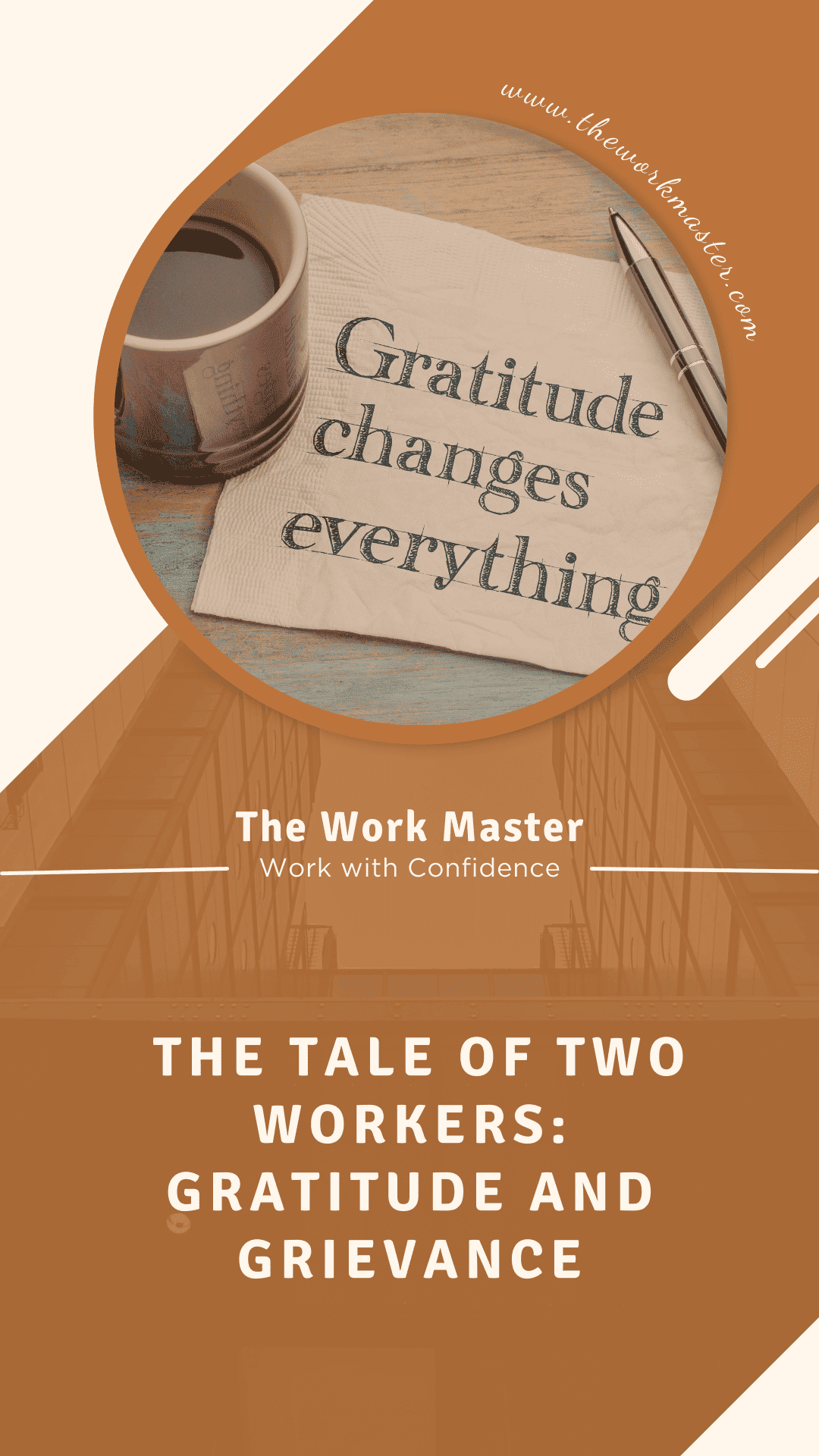The Dawn of a New Day
Every morning, John and Mark would walk into the office building at the same time, their footsteps echoing in the quiet early hours. They both worked at the same company, shared the same job title, and had the same responsibilities. Yet, their attitudes toward their work couldn’t have been more different.
John: The Grateful Worker
John was a man who greeted each day with a deep sense of gratitude. From the moment he woke up, he gave thanks for the roof over his head, the warm bed he slept in, and the job that provided for his family. For John, work wasn’t just a means to an end; it was a privilege.
He often recalled the time he was laid off during an economic downturn. For months, he struggled to make ends meet, watching his savings dwindle and feeling the pressure of not knowing how he would support his wife and two children. When he finally got his current job, he vowed never to take it for granted.
Every task John undertook at work, he did with dedication. He saw it as a way to give back to the company that gave him the chance to provide for his family. Whether it was something as simple as filing paperwork or as complex as handling a critical project, John approached it with the same level of enthusiasm.
When he received his paycheck, John didn’t just see it as money. He saw it as security for his family, food on the table, and education for his children. He was content, knowing that his work had a purpose beyond just earning a living.
Mark: The Complaining Worker
Mark, on the other hand, saw his job as a burden. Each morning as he walked into the office, he would grumble under his breath about the early mornings, the long hours, and the lack of free time. To him, work was a necessary evil, something that took away from the time he could be spending doing what he truly enjoyed.
Mark often complained to his colleagues about how tired he was, how unfair it was that he had to work so hard just to get by. He envied those who seemed to have more leisure time, and he resented his job for preventing him from enjoying life to the fullest.
His dissatisfaction was evident in his work. He did the bare minimum, often procrastinating or cutting corners just to get things done quickly. He saw his paycheck as never enough, always feeling like he was being shortchanged, and spent much of his free time worrying about what he didn’t have rather than appreciating what he did.
The Power of Gratitude
As time passed, the differences in John and Mark’s attitudes began to manifest in their careers. John’s consistent dedication didn’t go unnoticed by his superiors. He was promoted, given more responsibilities, and even received a bonus for his outstanding performance. But for John, the true reward wasn’t in the promotions or the money—it was in knowing that his hard work was making a difference. He found satisfaction in knowing he was doing his best, and that his family was well taken care of.
Mark, however, found himself stuck in the same position, with no recognition or advancement. His complaints grew louder, but they fell on deaf ears. His negative attitude created a self-fulfilling prophecy; the more he resented his job, the less he achieved, and the less he achieved, the more he resented his job.
The Lesson of Gratitude
One day, as they were leaving work, John and Mark had a conversation that would change Mark’s perspective.
“Why do you always seem so happy here?” Mark asked John, genuinely curious. “We do the same job, but you seem to actually enjoy it. How?”
John smiled. “I’m just grateful to have a job, Mark. I know what it’s like to not have one, to not know where your next meal is coming from. Every day I come to work, I’m thankful for the opportunity to provide for my family. I see it as a blessing, not a burden.”
Mark pondered this. He had never considered his job in that light before. He had always focused on what he didn’t have—the free time, the energy, the money—but never on what he did have. A job that kept a roof over his head, food on the table, and gave him the means to live.
A Change in Perspective
From that day on, Mark decided to adopt John’s mindset. He began to approach his work with a newfound sense of gratitude. He still got tired, and he still missed his free time, but he started to focus on what he was gaining rather than what he was missing.
Slowly, he noticed a change. His work became more fulfilling, his mood lifted, and he even started to receive positive feedback from his superiors. He realized that his attitude had been holding him back, and that by shifting his perspective, he was opening himself up to the rewards that come from gratitude.
The Gratitude Advantage
Many people around the world would give anything to have a job, to have the means to support themselves and their families. Being grateful for what we have, even when it’s not perfect, is the key to unlocking a life of purpose, satisfaction, and true happiness.
So, the next time you find yourself grumbling about your job, remember John’s story. Gratitude isn’t just about being thankful for what you have; it’s about understanding how fortunate you are to have it. In that understanding lies the secret to a rewarding life.
Grab our free hand-picked
list of remote jobs now!
*Includes 148 websites with multiple remote
job offers organized into 7 categories.
Bonus: You'll receive updates on new free resources as soon as they are live.
+ Best remote job recommendations and little-known freelancing hacks for time-saving.




Comments
Post a Comment